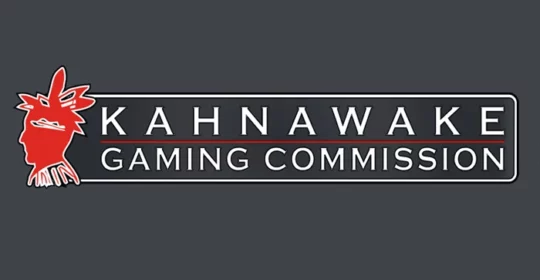Canada has a distinctive approach to online gambling laws, and its Criminal Code doesn’t address it in detail. However, each province can decide independently how they wish to tackle the issues of regulating this form of entertainment.
As there are 13 regulatory authorities, the laws are different for each jurisdiction. In essence, you can play casino games and bet online without getting into trouble. It’s just that some have access to locally regulated sites whilst others use offshore operators.
Table of contents
- Legality of online gambling in Canada
- Permissibility of international gambling websites
- Taxation of online gambling winnings in Canada
- KYC requirement for online gambling in Canada
- Use of cryptocurrencies in Canadian online gambling
- Legal operation of online gambling sites in Canada
- Addressing issues with online gambling sites in Canada
Legality of online gambling in Canada
Legality of Online Gambling in Canada Here’s a rundown of Canadian gambling laws, and examples of how provincial regulatory frameworks operate:
Overview of Canadian Laws The easiest way to sum up the position of the federal government is that the activity isn’t explicitly illegal. The Criminal Code of Canada was amended on August 27, 2021, and legalised online single-game sports betting.
This was great news for those who want to bet on sports locally. That being said, certain provincial authorities have gone above and beyond to ensure better coverage of online gambling activities.
The following jurisdictions allow you to place bets and play casino games:
- Ontario – In April 2022, iGaming Ontario launched, and foreign operators can register there if they wish to offer their services.
- Quebec – Espacejeux provides casino and sports betting services in Quebec.
- British Columbia and Manitoba – PlayNow is the only provincially regulated operator in these parts.
- Alberta – Play Alberta is the single licensed casino and sports betting website here.
The rest of the provinces don't have licensed casinos or sportsbooks, but online gambling is legal in all of them. The Northwest Territories, Nunavut, and Yukon have no gambling sites.
Permissibility of international gambling websites
Again, nothing in Canada’s Criminal Law states that playing on offshore sites is illegal. So, if your local options are limited, you can search for internationally-licensed websites.
There are in-depth reviews on top Manitoba online casinos in 2024, featuring a list of operators who accept players from Canada. This makes it a lot easier for you to find quality sites and to know in advance what to expect.
Taxation of online gambling winnings in Canada
There is a set of laws regarding transaction reporting and winning taxation. Discover what regulations are enforced in Canada in the sections below.
Taxation policies
According to the Income Tax Act, gambling winnings are tax-free in Canada. That being said, this Canada gambling law doesn't apply to professional gamblers. You must pay income tax on your winnings if you're considered a professional gambler.
Reporting requirements
The taxation gambling law in Canada requires operators to submit reports. They must report the following things to the Financial Transactions and Reports Analysis Centre of Canada:
- Casino disbursement
- Large cash transaction
- Large virtual currency transaction
- Electronic funds transfers
- Suspicious transaction
- Terrorist property (such as cash, virtual currency, casino tokens, and similar)
KYC requirement for online gambling in Canada
Brands must follow the KYC (Know Your Customer) policies to ensure a safe environment. The KYC procedures involve verifying your age, identity, and address. In some instances, operators are obligated to confirm your source of income.
👉 This is done for the purpose of preventing underage gambling, fraud, and other illicit activities.
Legal age for gambling
Canadian online gambling laws vary from one province to another, as does the legal betting age. In Alberta, Manitoba, Quebec, NWT, and Nunavut, you have to be 18 or older to gamble, while other territories have a 19+ policy.
ID verification processes
Online casinos in Canada must verify their customers' identities. You need to submit an identification document, such as a passport or driver's license.
Use of cryptocurrencies in Canadian online gambling
Many of the offshore sites that accept Canadian players are crypto-friendly. You might choose crypto over bank transfers due to faster processing times and lower fees. Moreover, no third party can access your information. Some popular options include:
- Bitcoin
- Ethereum
- Litecoin
- Tether
Legal operation of online gambling sites in Canada
Here is a short version of everything you need to know about gaming commissions and the compliance-centric responsibilities they enforce on regulated entities.
Licensing and regulation
Each province and territory has its gaming commission that holds gambling operators accountable. They license and monitor brick-and-mortar and online casinos and gambling activities.
- Alberta: Alberta Gaming, Liquor and Cannabis Commission
- Manitoba: Liquor, Gaming and Cannabis Authority
- Quebec: government corporation Loto-Quebec
- British Columbia: Gaming Policy and Enforcement Branch of the Ministry of Finance
- New Brunswick: The Gaming, Liquor, and Security Licensing Branch
- Newfoundland and Labrador: Atlantic Lottery Corporation
- Nova Scotia: Alcohol and Gaming Authority of Nova Scotia
- Ontario: Alcohol and Gaming Commission
- Prince Edward Island: PEI Lotteries Commission
- Saskatchewan: Saskatchewan Liquor and Gaming Authority
- NorthWest Territories: Municipal and Community Affairs of Consumer Services Department
- Nunavut: Consumer Affairs, Department of Community and Government Services
- Yukon: Professional Licensing and Regulatory Affairs Branch of the Department of Community Services
Compliance with anti-money laundering (AML) laws
AML policies and trained staff are essential licensing requirements. Knowing how to spot suspicious activity, when to flag transfers, or freeze someone’s account can stop criminals in their tracks.
Historically, casinos have been used for money laundering, and banks still regard them as high-risk entities. So, to operate in Canada and be part of their banking network, certain criteria must be met.
Creating a compliance programme, performing verification checks, and storing user records are essential.
Suspicious activities have to be reported to FINTRAC.
Screenings of PEPs, HIOs, their family members, and close associates must be conducted.
Addressing issues with online gambling sites in Canada
In the event you have a problem with one of the licensed casinos, you don’t need to involve the authorities right away. There are internal policies and communication channels you can use to resolve the issue.
Customer support channels
All serious brands have round-the-clock customer support, and their teams are fairly responsive. In most cases, they can provide an explanation or address your concerns.
Dispute resolution mechanisms
There are also dispute resolution channels and emails. If you had a negative experience due to their oversight or neglect, they will gladly resolve it. Offshore sites that don’t answer to local commissions might be a different story.
Technically speaking, Canadian consumer protection laws won’t apply, so they won’t get in trouble if they ignore you.





